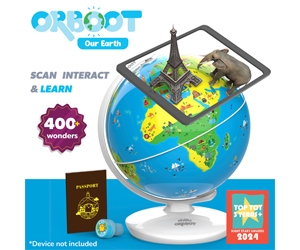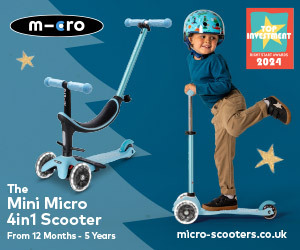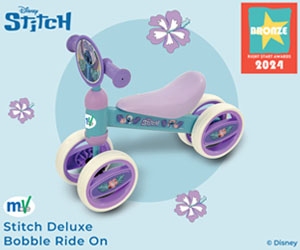BAFTA Award-winning EduTuber, STEM programming host and TV presenter, Maddie Moate has teamed up with leading educational toy manufacturer, Learning Resources, to highlight the benefits of learning coding skills through play.
Introducing coding at home and in the classroom can help support children’s entire learning journey. Coding isn’t just for budding computer programmers, and there’s more to it than computing and algorithms, so whether children plan to become a computer whizz or not, there are lots of benefits of learning coding.
The earlier children start, the more they’ll get out of it. Coding is fun, and when children engage with coding and programming through play, they practise skills such as critical thinking and problem-solving, and develop their creativity and sense of curiosity.
Maddie Moate says: ‘Coding is one of the most widely used ‘languages’ on the planet - powering computers, robotics and software across the globe. It’s easy to be daunted by the prospect of coding if it’s not something you’re familiar with. But even learning the basics – which children can start to learn from as young as four – can help to boost children’s all-round skills.
‘The computing curriculum in schools ensures most school-age children experience some form of coding education in the classroom,’ she adds. ‘Even if parents don’t have first-hand experience of it themselves, there are lots of simple ways parents can incorporate some fun coding activities at home.’
HOW TO GET STARTED
There are lots of fun practical activities families can do to get going with coding.
- Museums are opening again and many have STEM and coding-themed exhibits for kids. Visit the Science Museum in London and see the fascinating exhibits on coding – covering everything from mathematics, the UK’s code-breaking history, to cyber security. Entry is free (pre-booking now required) and offers an ideal opportunity to see real examples of the world of coding.
- Find fun sequencing and map exploration activities on the Learning Resources website and print or download them for free!
- Go to Maddie’s YouTube channel and check out the episode filmed at The Centre for Computing History. Watch Maddie and her Let’s Go Live
co-presenter, Greg try to code! Or Follow Maddie on Instagram and check out her video with Botley 2.0.
- Check out this great blog for screen-free coding activities: (http://blog.learningresources.com/coding-sidewalk-chalk/)
Check out Botley 2.0 The Coding Robot!
Ideal for encouraging STEM learning through play, Botley 2.0 is a simple and fun way to introduce early coding skills to children aged 5+ without a screen in sight. The programmable robot offers playful functions, activities that are ideal for first-timers and STEM challenges to keep children engaged. It’s easy to operate, with kids using directional arrows on the remote programmer to programme a sequence of up to 150 steps including forwards, backwards, left, right, and 45-degree turns.











